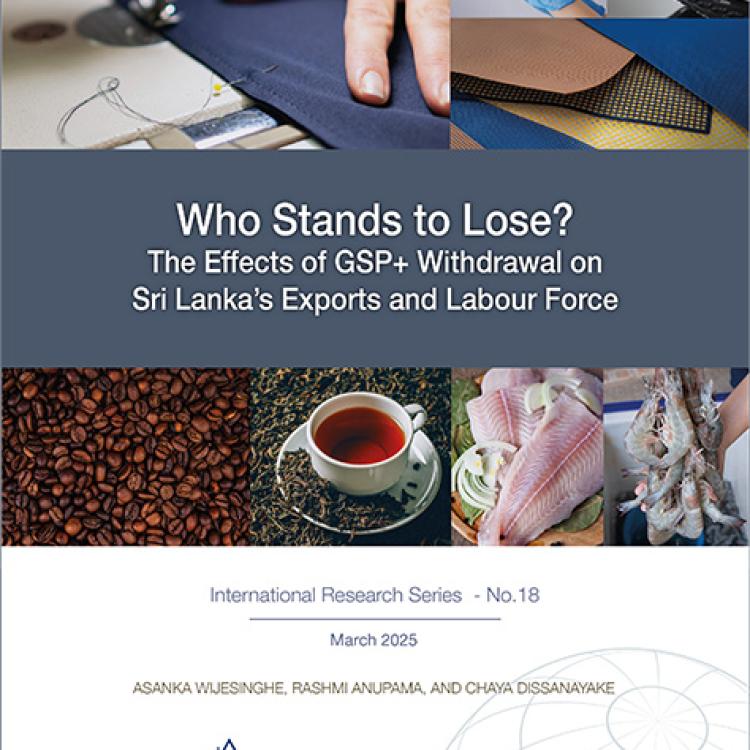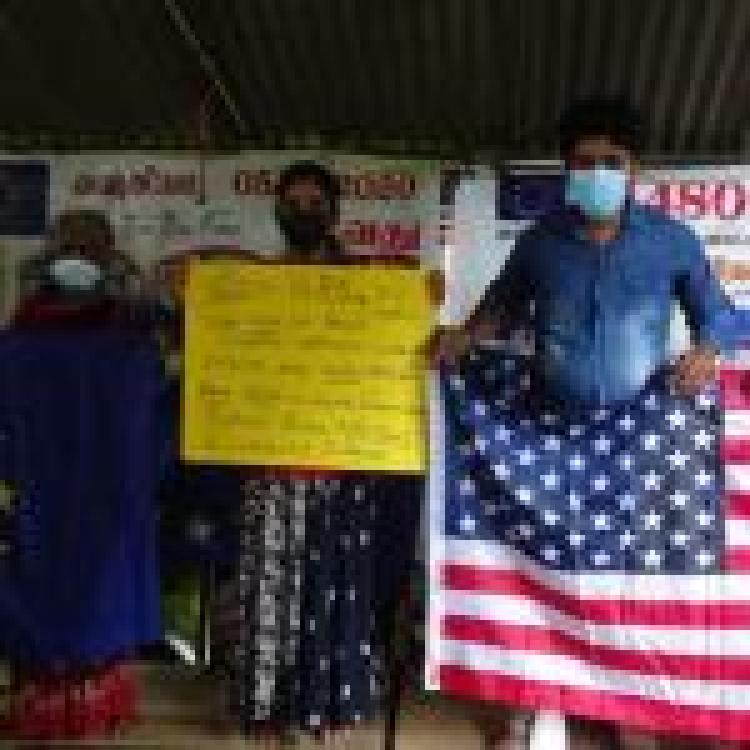.jpg)
A high-level European Union (EU) monitoring mission is currently in Sri Lanka to assess the country’s compliance with the Generalised Scheme of Preferences Plus (GSP+) - a vital trade concession worth over $500 million annually that grants Sri Lankan exports, particularly garments, duty-free access to European markets.
The EU delegation, led by Ambassador Carmen Moreno and Charles Whiteley, Head of South Asia Division of the European External Action Service, is on a ten-day visit from April 28 to May 7 to evaluate Sri Lanka’s implementation of 27 international conventions. These conventions span key areas such as human rights, labour rights, environmental protection, and good governance, compliance with which is a precondition for continued access to GSP+.
The visit includes meetings with government officials, politicians, civil society, trade unions, and business associations, as well as field visits to review ground-level implementation.
Sri Lankan president Anura Kumara Dissanayake met with the EU delegation on April 30 at the Presidential Secretariat. According to the Presidential Media Division (PMD), Charles Whiteley stated that the EU holds a “favourable perspective” on the current GSP+ review process and expressed the EU’s willingness to support Sri Lanka’s efforts toward commercial recovery.
Whiteley reportedly noted that the GSP+ concession would help Sri Lanka meet global quality standards, but that its continuation depends on the country’s alignment with policy commitments and demonstrated progress. Dissanayake, for his part, thanked the EU for its continued support, especially during the recent economic crisis, and acknowledged the role GSP+ has played in aiding Sri Lanka’s export sector.
He further remarked that the economic collapse was the result of “a deeply flawed political system, marked by corruption and mismanagement,” and claimed that the current administration is pursuing stable and transparent governance, though this transformation would require time.
Separately, Sri Lankan foreign minister Vijitha Herath confirmed that he met with the EU monitoring mission to brief them on Sri Lanka’s progress and discuss future avenues for collaboration.
.jpg)
The delegation also held discussions with opposition leader Sajith Premadasa and other Samagi Jana Balawegaya (SJB) parliamentarians. Premadasa urged the EU to expand Sri Lanka’s market access under GSP+, particularly in light of the 44% tariffs imposed by the United States on Sri Lankan exports.
Sri Lanka’s continued access to GSP+ remains uncertain due to persistent concerns over systemic rights abuses and the slow pace of legal reform. The Prevention of Terrorism Act (PTA), which permits prolonged detention without trial, remains a key point of contention between Sri Lanka and the EU, with international human rights groups warning that its use has disproportionately affected Tamils.
The last GSP+ monitoring mission took place in Colombo in 2022, and this year’s review will be crucial in determining whether the trade preference will be extended beyond its current cycle.
In 2024, Sri Lanka exported €2.7 billion worth of goods to the EU, with approximately 85% of those exports entering the bloc duty-free under GSP+.


